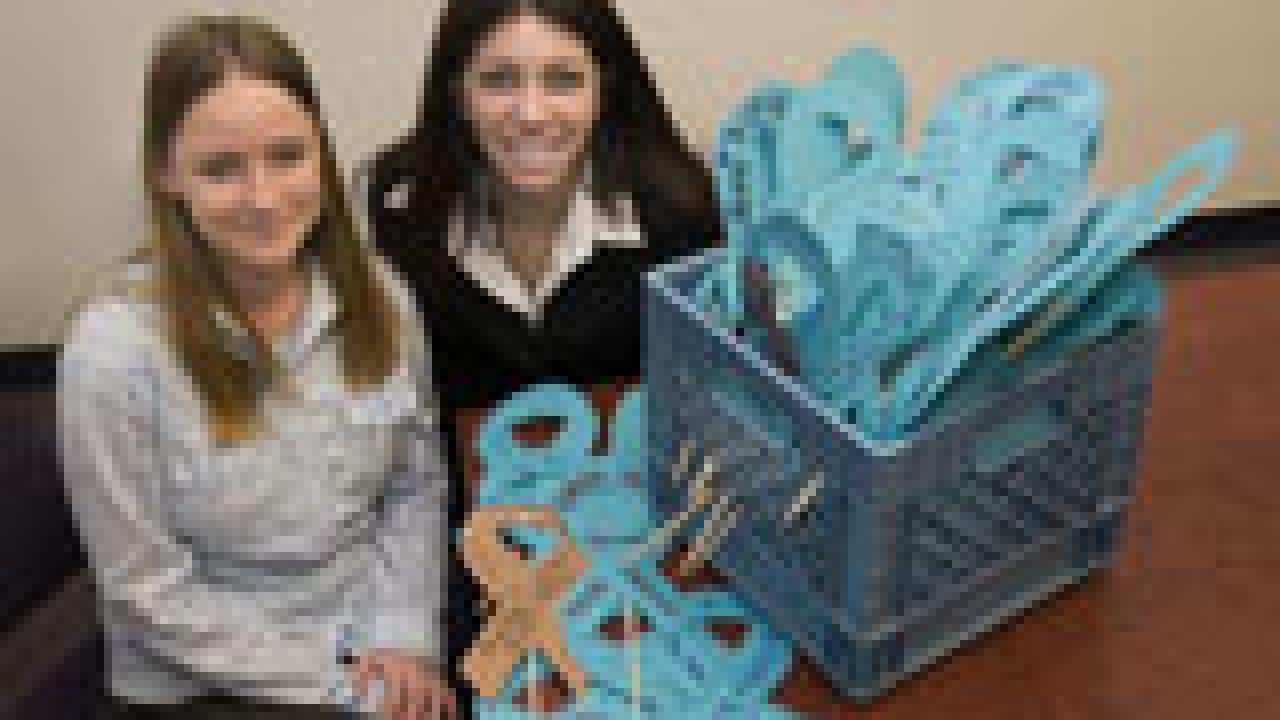"In the beginning, not telling anyone is a way to protect yourself," says Jennifer Beeman, director of the Campus Violence Prevention Program.
The secret? Sexual assault, defined as any unwanted sexual contact, even touching, Beeman said. "A third or more of all victims never tell anyone," she said. Such secrecy points out the continuing need for Sexual Assault Awareness Month, a nationwide event every April since 2001.
At UC Davis, the Campus Violence and Prevention Program is a place where victims can reveal their secrets in confidence, get assistance to deal with trauma and — if they choose — file police reports.
The program, begun in 1979, is a unit of the campus Police Department, but Beeman and her four employees, including one victim advocate, do not share victims' information with officers — unless the victims consent. "If we break that confidentiality, we are breaking the law," Beeman said.
At many other universities, victim assistance programs are attached to student affairs. Beeman said the UC Davis program, by working so closely with law enforcement, is in a unique position to support victims through the police report process and afterward, and go to officers for help with procedural questions even from victims who may not want to file police reports.
"This teamwork leads to better assistance for victims," said Lt. Nader Oweis, police spokesman.
In 2005, the Campus Violence Prevention Program worked with 176 clients: 67 in the sexual assault category, 64 in domestic or dating violence, 19 in the stalking category and 26 in the "other" category. "Other" takes in, for example, students who seek assistance regarding their having been molested as children.
UC Davis' actual sexual assault number is most likely higher, because not all victims seek assistance, Beeman said, basing her comment on a U.S. Department of Justice study titled "The Sexual Victimization of College Women," published in 2000. A data analysis led the authors to estimate that more than 350 rapes a year could occur at a college with 10,000 female students. UC Davis data from last fall show 16,224 female students out of a total enrollment of nearly 30,000.
Beeman, director of the Campus Violence Prevention Program since 1993, speculated on why many victims stay silent: They may feel that no one will believe them. They may feel ashamed. They do not want to be stigmatized. "They may feel responsible, thinking 'I shouldn't have been drinking or I shouldn't have let him walk me home. … I shouldn't, I shouldn't, I shouldn't.' "
Students in particular almost never want their families to find out, victim advocate Marisa Messier said. She also works with faculty and other staff members, male and female — though most clients are women and most are students.
Victims often blame themselves "even though it's absolutely not their fault," Messier said. She and Beeman said sexual assault is about power and control, not sex.
Messier, state-certified as a sexual assault victim counselor, became UC Davis' victim advocate in January. She is on call 24 hours a day, seven days a week.
She and her colleagues get the word out about their program in a number of ways, including presentations at student orientation, and sororities and fraternities, and training sessions for resident advisers and teaching assistants. Messier and Beeman noted that first-year students are especially at risk of sexual assault, because they are away from home for the first time and making decisions for themselves about whom to trust.
Many victims keep what happened to themselves, thinking they can "kind of forget about it," Messier said. But, in a few days or a week or a month, "they're having nightmares and having trouble in school."
She advises students of their many options for assistance, including the campus's Counseling and Psychological Services, and the Women's Resources and Research Center; getting tested for pregnancy and sexually transmitted diseases; and filing a police report or going to Student Judicial Affairs.
She said she is with her clients every step of the way, like a "rock" — through medical exams and police questioning, for example. She can talk with university administrators about allowing student to take time off from school, or work with faculty to postpone assignments.
Regardless of whether they file police reports, Messier said, all victims would be wise to take advantage of campus services that can help the victims get back on track and move on with their lives.
"It happens a lot more than people think," Messier said. "If you say you don't know anyone who has been assaulted, it's because they haven't told you."
For details, call 752-3299 or visit cvpp.ucdavis.edu.
Media Resources
Clifton B. Parker, Dateline, (530) 752-1932, cparker@ucdavis.edu
